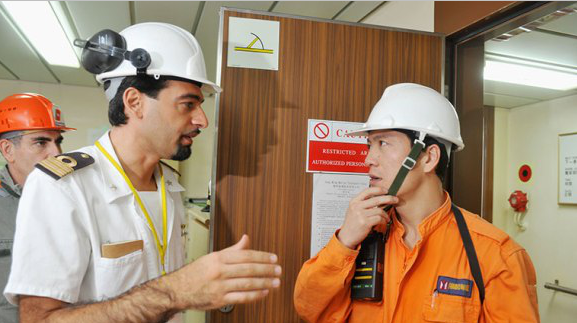|
The Positive Impact Of Labour Standards On Peoples’ Lives
Large multilateral organizations like the ILO have occasionally been accused of limiting themselves to mere declarations of principle, without any real practical impact. Indeed, when I first began working in the ILO’s standards department some 24 years ago, I was asked to review the impact of the Committee on Freedom of Association. Like others, I did wonder about the effectiveness of the mechanisms that were in place to ensure the implementation of ratified Conventions – known as ILO’s ‘supervisory system’.
Reading through reports dating back decades I found that recommendations from the Committee on Freedom of Association had, in some countries, led to the release of hundreds of workers from jail. In others, workers were reinstated in their jobs. Elsewhere, workers had been granted the right to organize in trade unions.
To my surprise, I found that the impact of the supervisory system was real and touched peoples’ lives in many important ways.
One of the key bodies of this supervisory system is the Committee of Experts on the Application of Conventions and Recommendations (CEACR) – an independent body composed of 20 high-level legal experts, charged with examining the application of ILO Conventions and Recommendations by ILO member States.
For instance, if a country faces difficulties in applying labour standards, be it forced labour, trade union rights or Occupational Safety and Health, the CEACR brings these cases to the attention of the government concerned and makes observations for remedial action.
Sometimes it’s not so easy to see the impact of the ILO’s monitoring and supervisory work. Dealing with child labour in cotton fields is an example. In such cases, the Committee of Experts would draw attention to the existing gaps. The ILO can then provide technical assistance and engage in a constructive dialogue with the government to put an end to child labour in that country.
The impact of the ILO’s work is sometimes only seen much later, as changes may have to occur at legislative level first. One example of this is the case of a Caribbean island state that had a labour code that said it was legal for female agricultural workers to be paid less than males doing the same work. The Committee of Experts engaged the government in question and recommended changes to the code.
Building constructive dialogue on social and labour issues with government counterparts is at the heart of the ILO’s work on standards. Offers to build countries’ technical capacity to help them fill gaps in compliance has proven to be effective over the years. This is, in part, because most ILO member States would rather be helped than be singled out during discussions on non-compliance at the International Labour Conference.
On Thursday 28 November, the role and accomplishments of ILO’s supervisory mechanisms will be reviewed at a special CEACR centenary event, during which there will be a roundtable discussion between current and past Chairs of the Committee of Experts and the 2019 Chair and Vice-Chairs of the Committee on the Application of Standards. This panel discussion will aim to highlight some of the major achievements, in terms of compliance with international labour standards, made through the complementary work of the Committee of Experts and the Committee on the Application of Standards.
The discussion will also cover the symbiotic relationship between the various ILO supervisory bodies, so providing a testimony to the fact that the ILO’s core normative functions can make a difference to peoples’ lives.
By Eric Gravel, Senior Legal Officer, International Labour Standards Department
|



